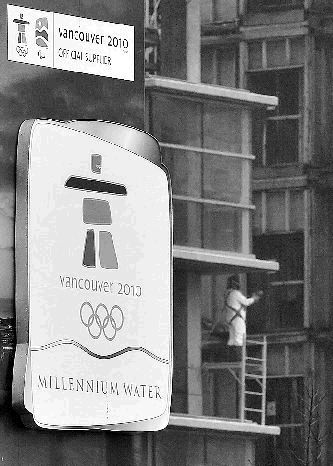Documents show they expected to recover $100 million, thought dismissal of developer would put Olympic village schedule at risk
Jeff Lee
Sun

The Olympic village developer ‘exceeded expectations’ in its transformation of the southeast False Creek property, city hall managers reported. Photograph by: Ward Perrin, Vancouver Sun
Senior Vancouver city managers never wavered from their belief that Millennium Development should remain as developer of the Olympic Village even as global markets tumbled and the financial risk to city taxpayers grew.
They even argued in confidential documents that removing Millennium would inject greater risk to taxpayers and compromise already tight construction deadlines on the $1 billion real estate project.
Most importantly, they said the project remained financially viable and that the city could recoup with interest the $100 million they were proposing be given to Millennium until its commercial lender, Fortress Credit Corp., resumed loan payments.
Staff also praised Millennium, saying it had “exceeded expectations” and had performed well even though escalating construction costs and the subsequent worldwide credit crunch had hurt its financial deal with Fortress.
The Vancouver Sun reported Thursday that it was given copies of in-camera city council briefings outlining troubles with the False Creek South development. The first was a June 26, 2007 meeting in which the elected politicians were told the city’s decision to withhold ownership of the 17-acre parcel until after the 2010 Winter Games had vastly complicated Millennium’s ability to get construction financing.
The report, written by finance director Ken Bayne and Olympic Village development manager Ian Smith, recommended the city give Fortress a “completion guarantee” as well as access of up to $200 million if a $683-million loan to Millennium went bad. Council agreed, in part assuaged because the real estate market was strong and Millennium’s owners had offered substantial personal and corporate guarantees.
But by October 2008, the market had changed and Fortress, a publicly traded hedge fund, was getting nervous.
The confidential reports show that in the infamous in-camera meeting Oct. 18 when council agreed to provide up to $100 million in interim financing, staff argued not to “take out” the developer and that the project remained financially viable.
That report, written by former deputy city manager Jody Andrews, the village’s project manager, pointed out that Millennium was suffering from modest cost increases of between six and 10 per cent, or $60 million to $100 million because of global and local market pressures.
(A city press release issued Thursday night announced that Andrews had resigned his post.)
Despite that, he said, the company had “performed well” and was on schedule with only 13 months to completion.
More importantly, he noted, costs were now “crystallized” because 100 per cent of the major building trades were contracted, as were 90 per cent of the sub-trades. As a result, the city and the lender had certainty over the remaining costs.
The confidential report indicated that when Millennium received the $750-million loan from Fortress in September 2007, it projected a net profit of $135 million.
Andrews said that profit had sharply declined to between $38 million and $78 million by October 2008, but that the city’s money was still relatively safe.
He said city staff looked at the pros and cons of “taking out” Millennium under its contractual rights and replacing it with another developer, and concluded that there was no compelling reason to do so.
“Millennium’s ongoing role in the project would avoid a loss of confidence by future purchasers who could be potentially “scared off” by a material change in project management and delivery, he said.
Andrews gave councillors three options: do nothing, refinance or provide “protective advances” until the city could convince Fortress to restart its loan payments.
The first two were considered too extreme because they would trigger expensive clauses and still require the city to inject upwards of $100 million to stabilize the project.
Andrews said the third option, the protective advances, was the safest for the city.
“This action does not precipitate the unnecessary and/or premature removal of Millennium and provides the most attractive risk profile to the city in moving forward,” he wrote.
“Staff reiterates that, at this time, the project is viable financially and the best possible outcome is for Millennium to complete the project on schedule.”
Council unanimously endorsed the proposal.
© Copyright (c) The Vancouver Sun
